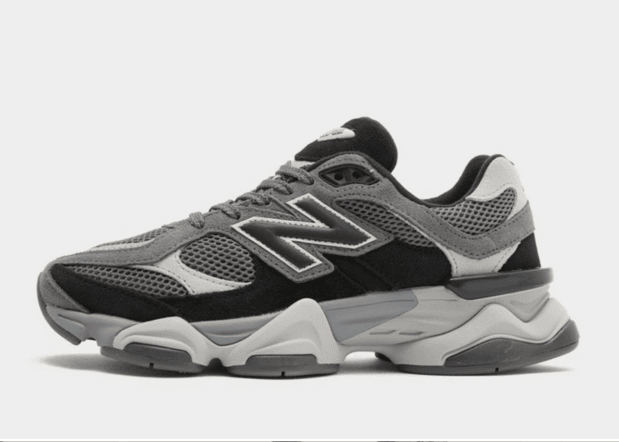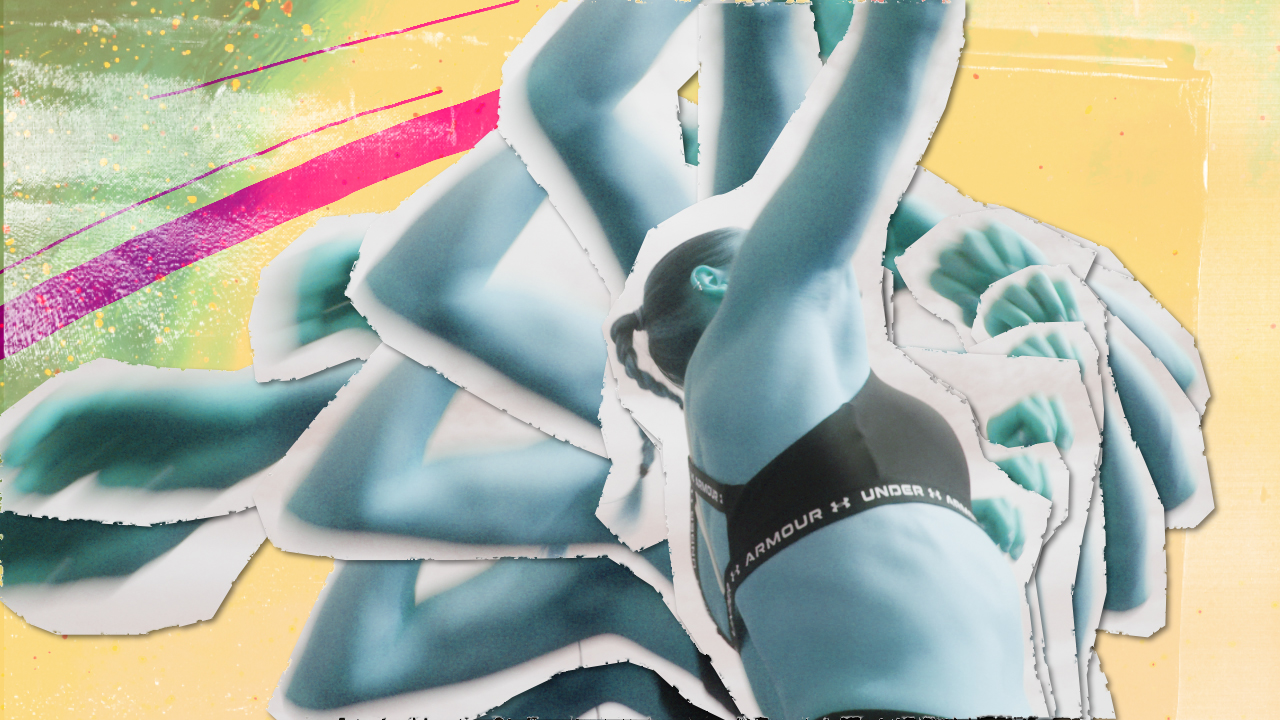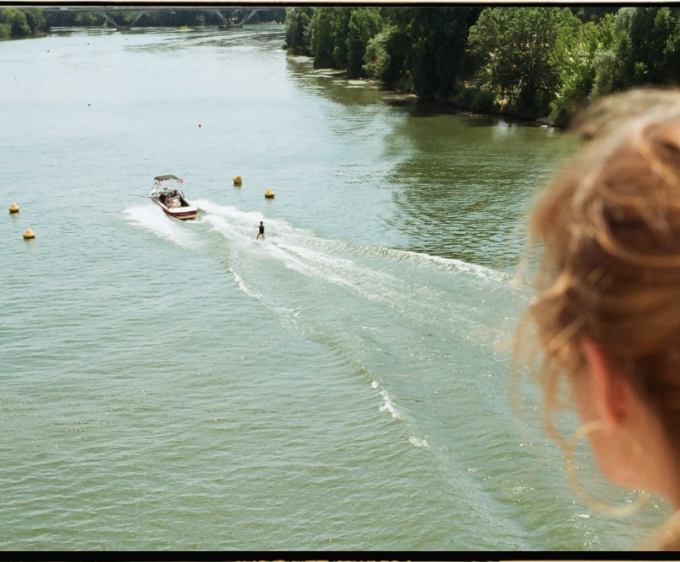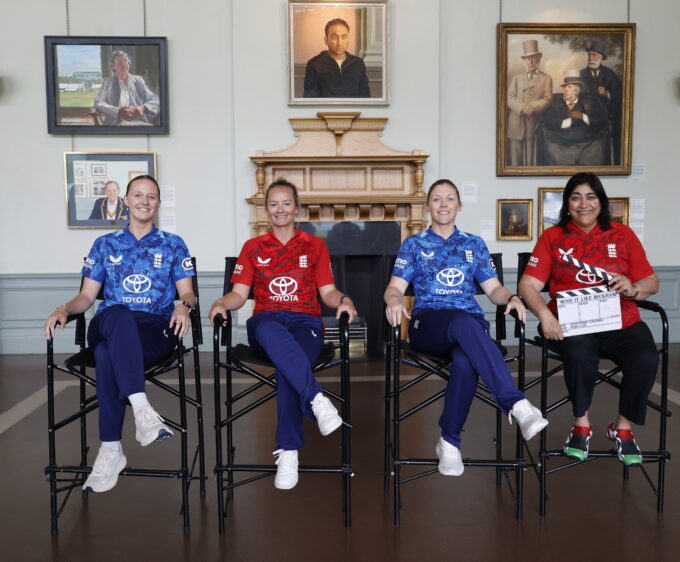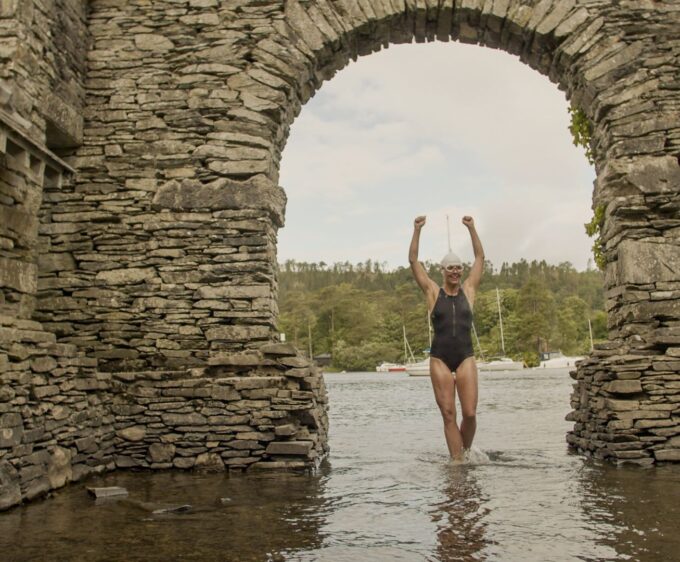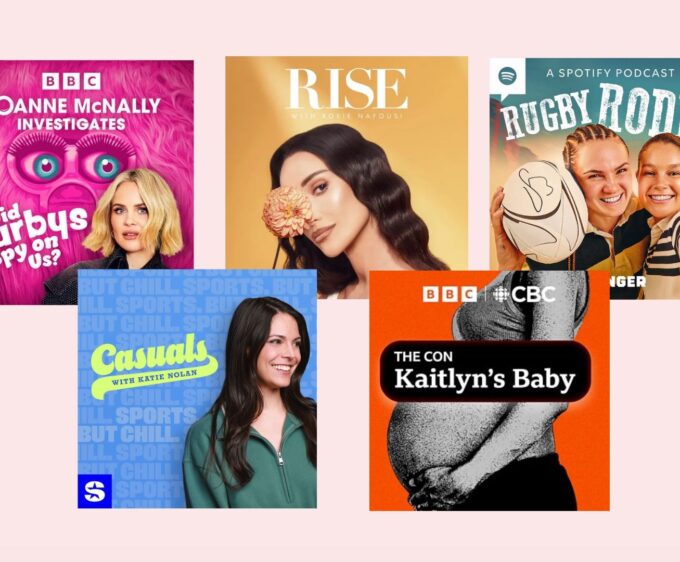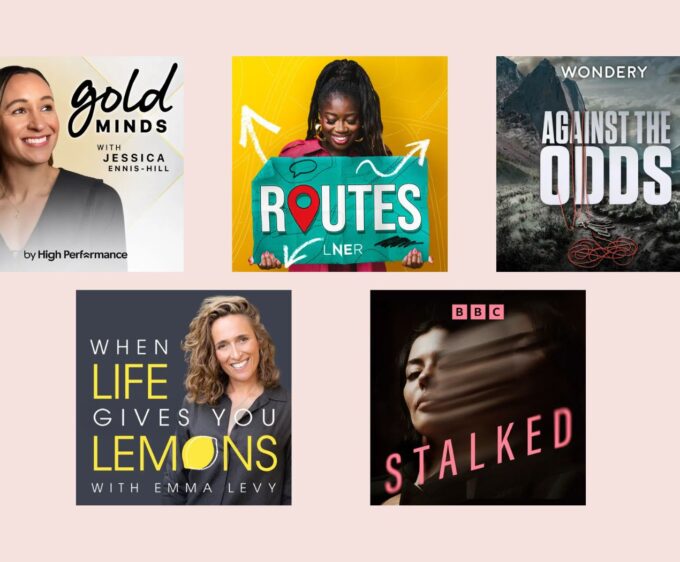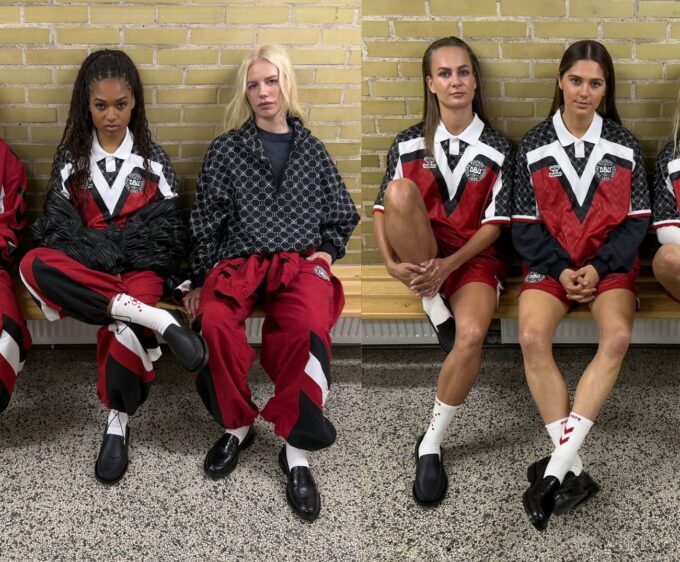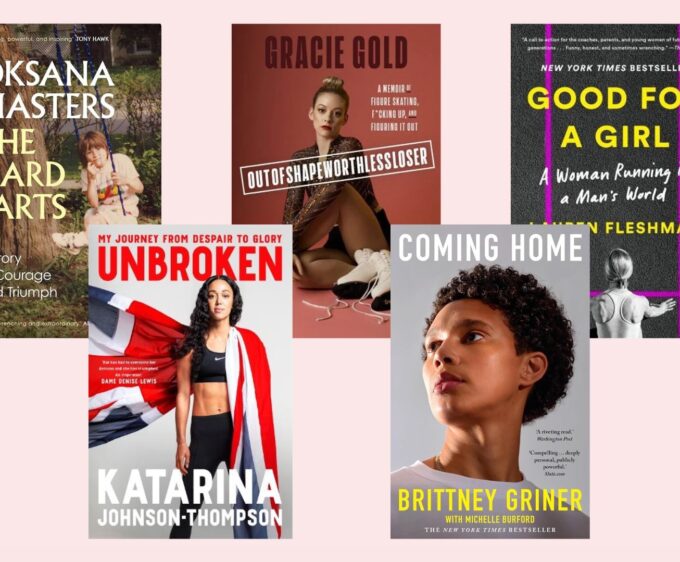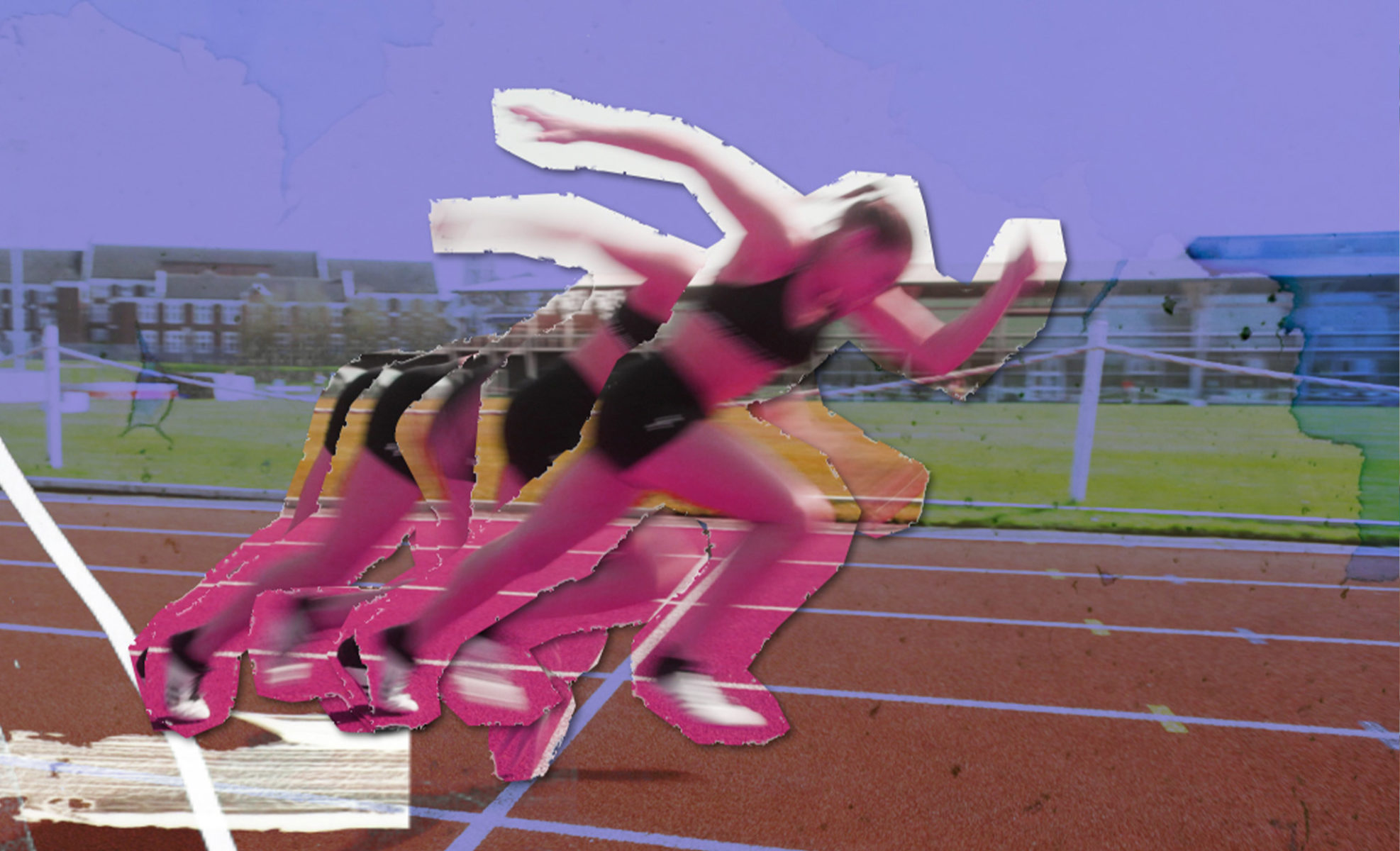
Winning Mindset
Niamh Emerson used her strength, focus and psychology studies to power through three months of rehab. Here’s how she turned things around
By Dr Josephine Perry
Niamh Emerson should have been firing out those “I’m off to Tokyo” tweets, Instagramming her new GB kit and focusing on the final stages of competition preparation. Instead, she is putting all the effort that previously went into mastering heptathlon into her rehab, using exactly the same mindset and mental skills that she’ll be relying upon once she is back up and competing.
I’d love to give you every word she said when we talked, but this is tricky because when you interview Niamh, even over Zoom, you quickly realise she is so active and has so much energy that many words get mimed. Her mind, like her racing speed, seems to be constantly running ahead, and actions can be quicker than words. It means that everything she says comes across in 3D, which is probably befitting of someone who doesn’t just take on one event in a competition, but seven.
When we talk, she has just got back from training, starting to put rehab behind her. She has become pretty good at rehabbing since her first major injury, tearing her patella tendon in 2019. That year, while it was tough and she had to miss the World Championships, she was also able to enjoy the time off. “I just embraced it, had a really nice summer, did all my rehab, went on holiday, there was no Covid, so I could have a life – It was a nice feeling of having a life outside of athletics.”
Niamh’s recovery took longer than expected, but with the Olympics cancelled, she had time to fully rest and recover. She knew that making the Olympics this year was a big ask, but did work incredibly hard for two months to try to get there. The sheer load of all this additional effort caused a stress response in her foot, requiring time in a boot and lots of rehab. “I was heartbroken. It has been the toughest thing I have had to deal with.”
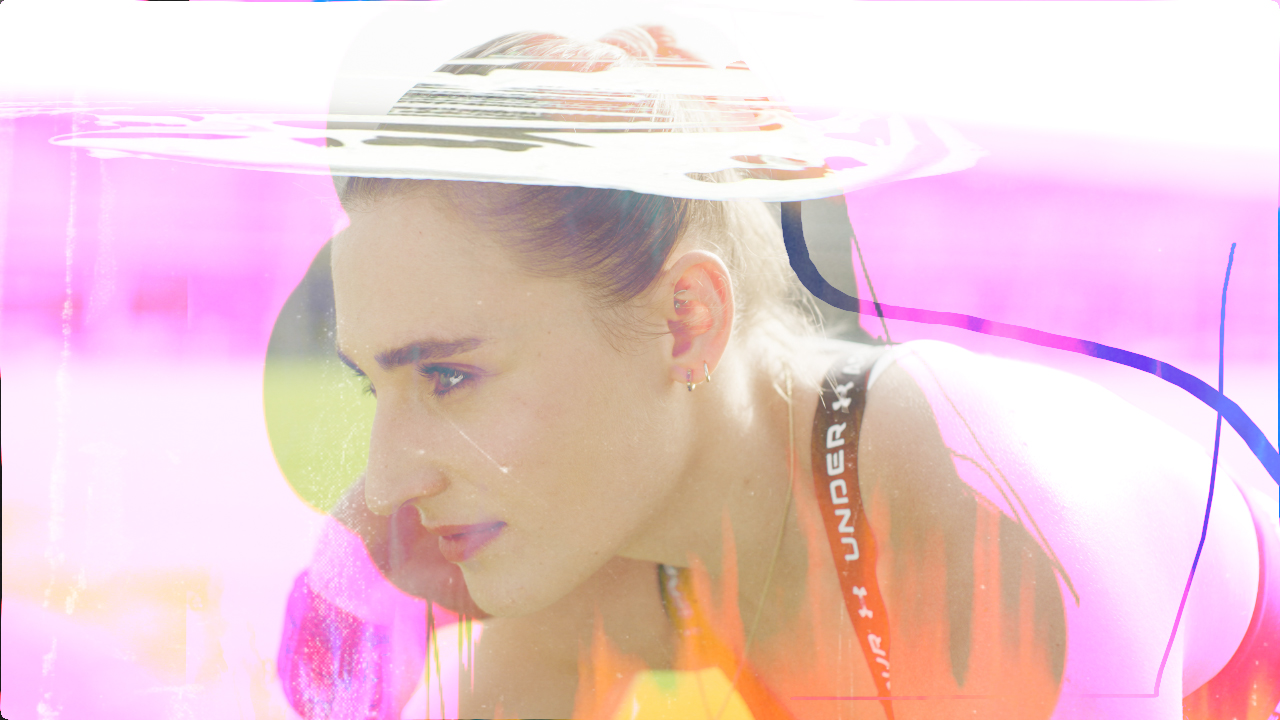
MINDSET
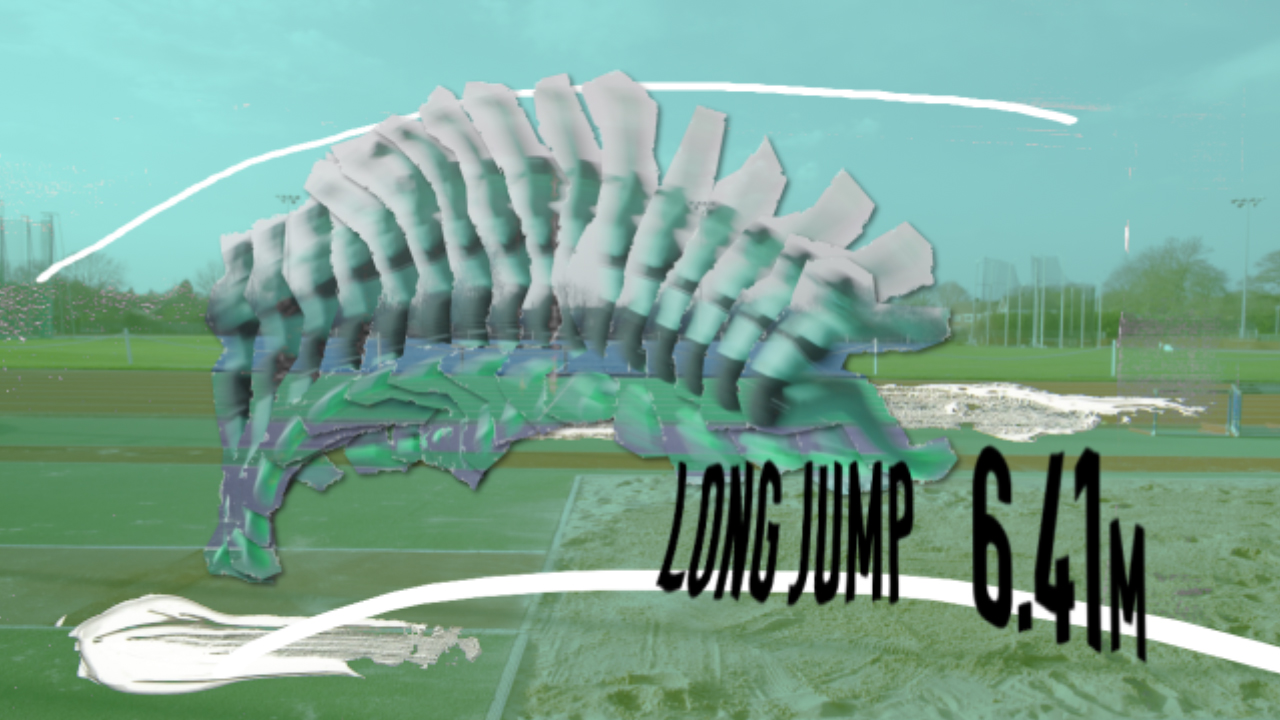
She dealt with it by putting her heart and soul into recovery. “Even when you are injured, there is so much to do – when you spend the whole day training you can actually fit loads in. You can train for three hours in the morning and come back and do another three. It is a lot, but it is not intense the whole time,” she explains. “You can take the boot off and do pool sessions, and keep it on in the gym for the machines.” After three months of this, she is just about to get back on the track and running.
One of the reasons why injury is hard for Niamh and many elite athletes is that their self-identity is wrapped around the idea of being an athlete. “A lot of my life is athletics, which I am only just realising now, because all of my friends are getting ready to go to under-23s or the Olympics.” I asked, if we broke her in half like a stick of rock, would it say “athletics” all the way through? “Yes. Which is great, but also that is not a good thing. What I now know from studying my psychology degree is we might have too strong an identity. You can have other interests, but with being a professional athlete and trying to go to the Olympics, it is hard to then have other things. I love it so much and to me it is everything.”
What Niamh has realised with this injury, though, is that not everything in rehab is necessary – some of it is given to keep you mentally stimulated. “I don’t like doing things for the sake of it – there has to be a purpose behind everything. So if I am doing a rehab exercise, I want to know why I am doing that and what it is going to do for me.” Where it works well for her is where it is set up to show improvement. “To me, the way I have managed to stay relatively positive is through doing my bike sessions, because even if you feel a bit rubbish, you go on the bike and you do feel better and it is nice because all of my rehab is measurable. I will try to make every time quicker.”
It seems as if she is treating her recovery just like a competition. She likes the timelines and schedules and physio work because they give her routine – just like she would have in a competition. The only difference, she says, “is that competition gets measured and is more official because there is a man there in a suit with a stick. This tricking myself that they are similar is a coping mechanism for me, because in training you are relaxed and you just think about the process and go to robot mentality.”
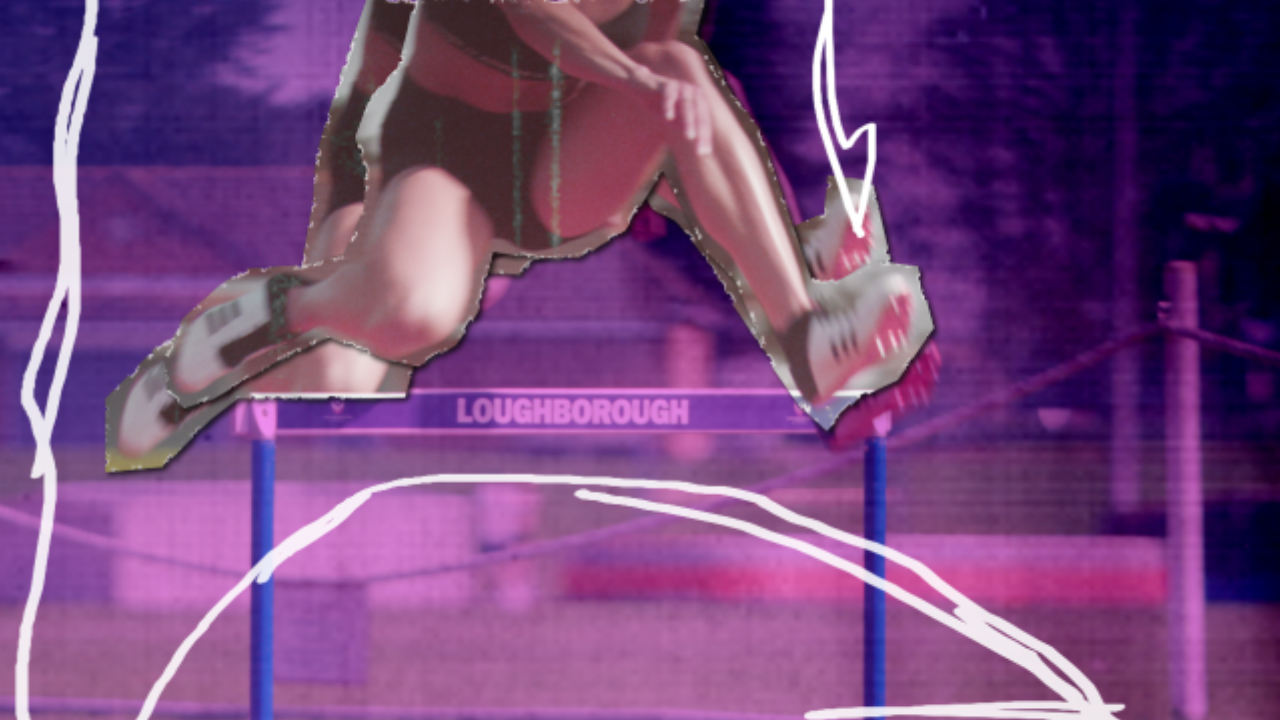
This robot mentality has helped her competition approach, too. “I will try and be so calm and process-driven to bring the training vibe to competition.” She sees competition as a way of testing not only her physical abilities, but also her personality. “I am quite lucky; I naturally forget things really quickly and I move on, so I am able to approach every single event individually. I’ll be so focused on shot put, I’ll forget I’m in a heptathlon. Let’s say I had a really bad hurdles and then I go to my next event, high jump – then I just forget because I’m so fixated on that next event.” This process-driven approach is one we would absolutely recommend as sport psychologists, so to see Niamh develop it naturally is brilliant. “I believe that is a strength, so I will purposefully have strategies that make me forget even more.”
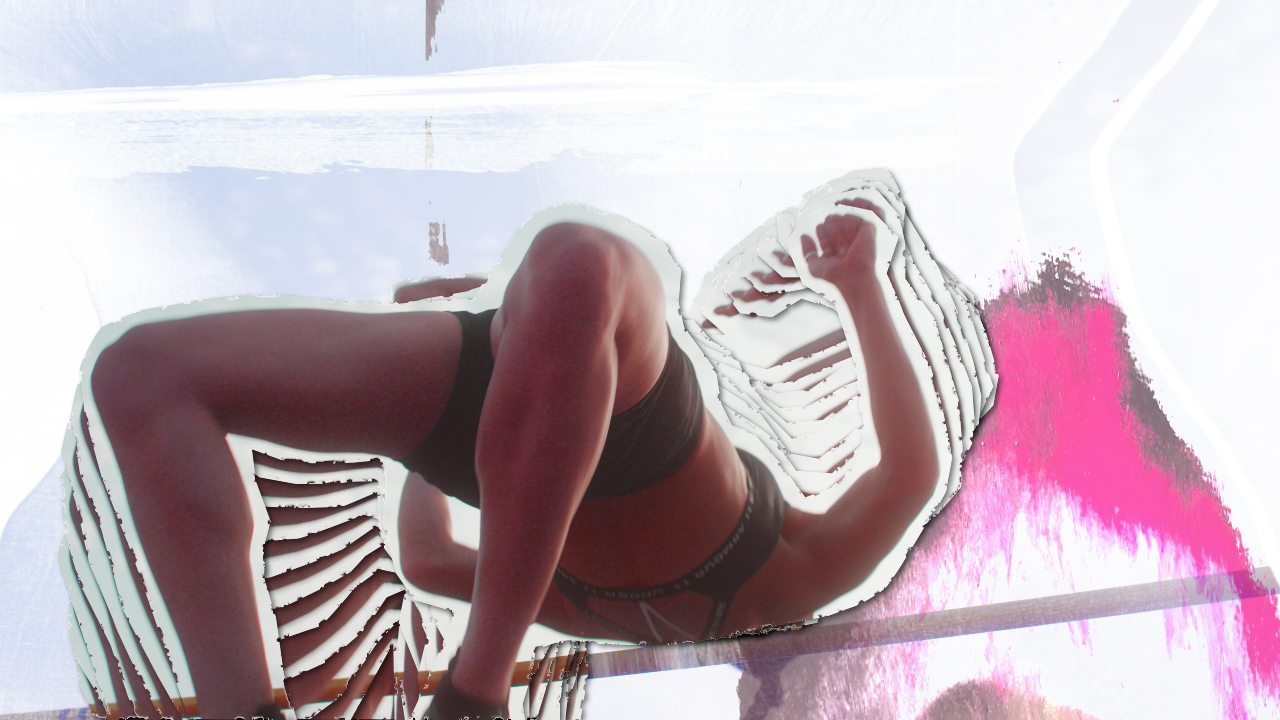
TECHNIQUES
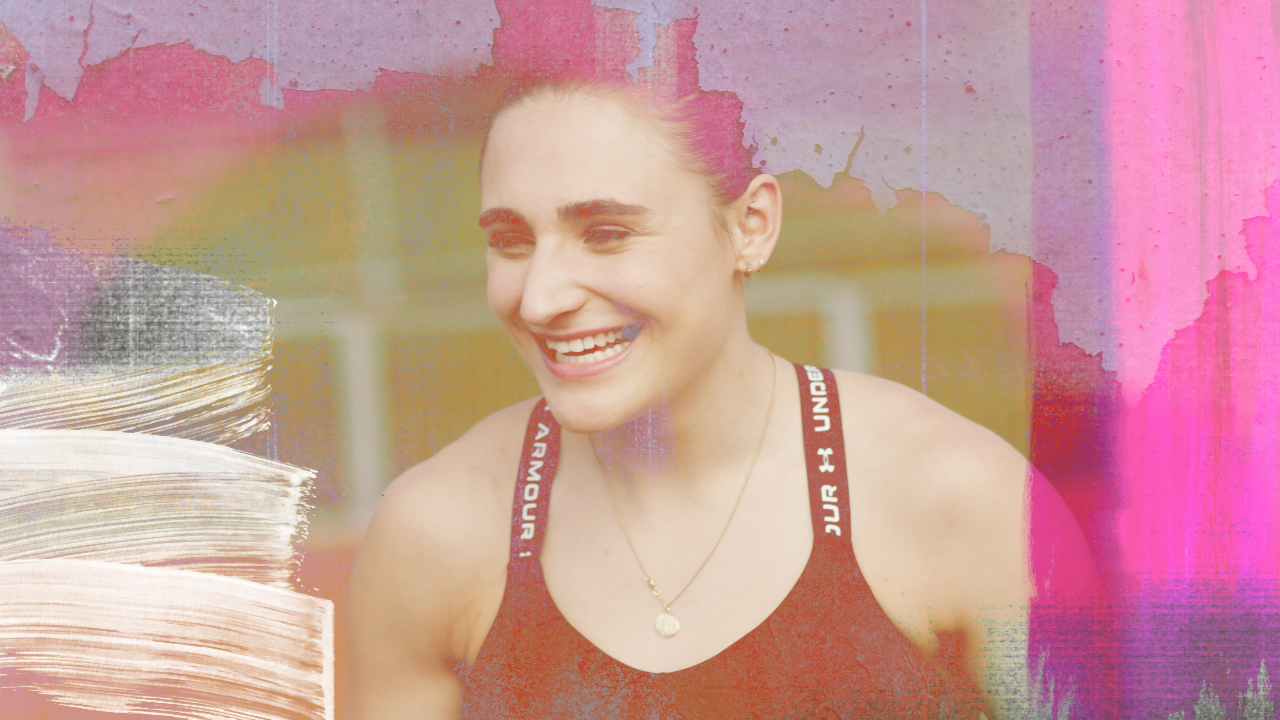
Niamh’s focus just on each event means she is also able to avoid getting swept up in how others are going, or in making comparisons. This focus only on yourself is another strategy that sport psychologists would advocate. “I’ve never once considered heptathlon to be a competition against other people, until the 800. When I think about heptathlon, it is so individual that I forget that it is even a competition. The only time I ever think about anybody else is in the 800, because you can actively beat them or they can beat you, whereas in all the other events you can focus on you.”
To prep for the Olympics, Niamh slowed down her university modules – but she will be getting back to a full uni, and training, workload next year. What she has learned has already benefitted her as an athlete, as did using a sport psychologist in the past, and she is looking forward to getting her teeth into the applied work. “Now I have studied psychology and learned the theory behind what I had done with the psychologist, it has given me skills I didn’t realise I could use.” What she really likes in psychology, though, is not sport psychology but clinical and neuroscience and really understanding the physiological impact of our behaviours, thoughts and emotions.
From the sport psychologist, she learned how to use imagery effectively to improve performance, and breathing techniques to be able to focus. “When I feel stressed, I will use breathing techniques, I will use imagery, but it is very free flowing. I am quite visual. I like to see it and then I just recreate it. I do use imagery a lot and I’ll always think about what I am going to do before I do it – so I’ll always see myself doing something and then go do it.”
With such a well-developed mindset for competition, rehab and training, a bunch of mental skills on hand to help her stay focused and a degree which gives her insight into all her performance behaviours, Niamh looks to be back on track to regain her place on the international athletics scene.
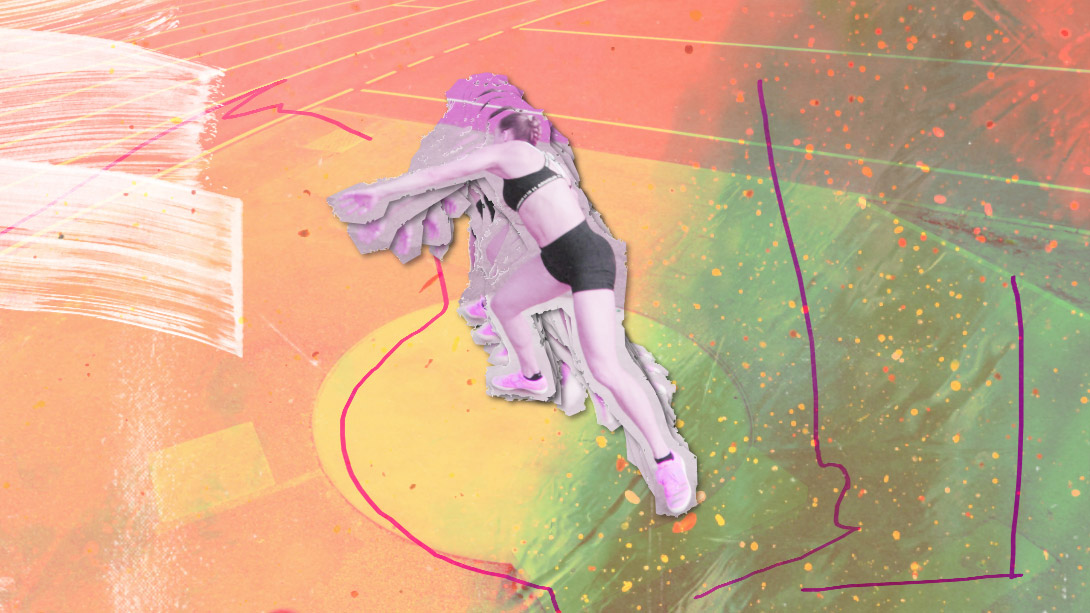
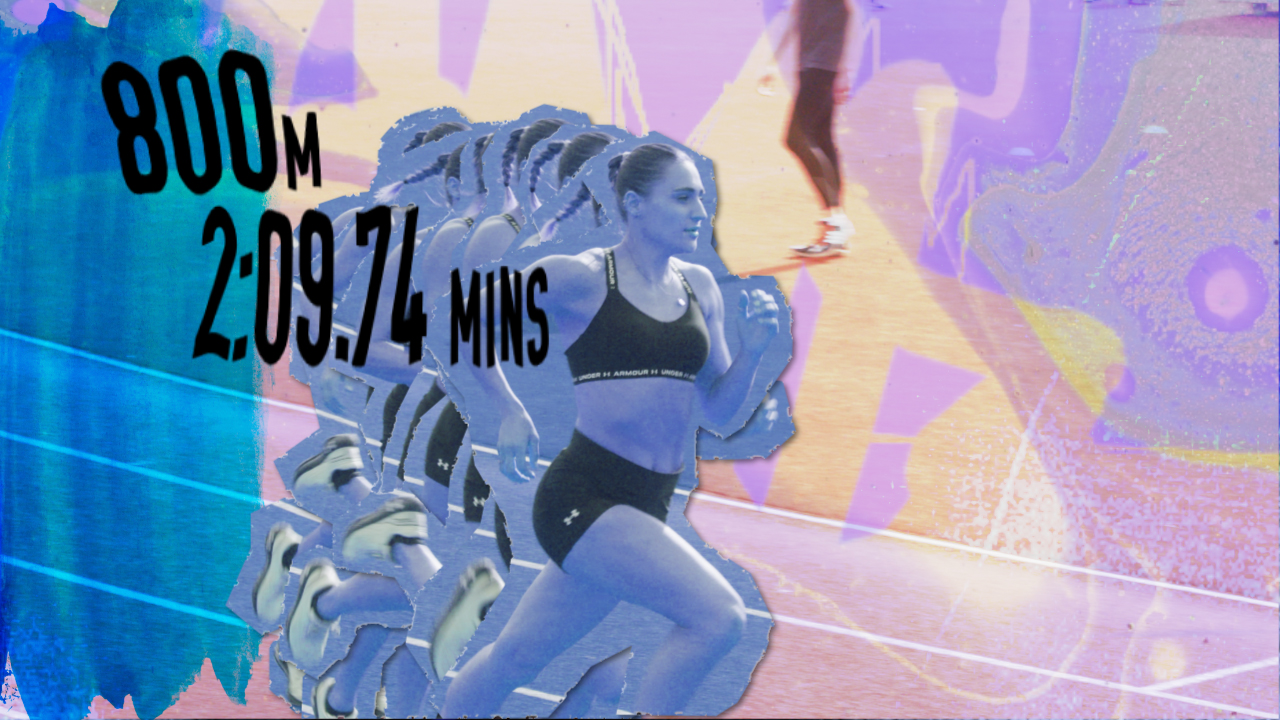
Art Direction & Production Root, DOP Tim Spicer, 2nd Camera Xavier Carbo, 1st AC Toby Harris, Hair & Make-up Brigita Smart, Location Loughborough Athletics Centre
